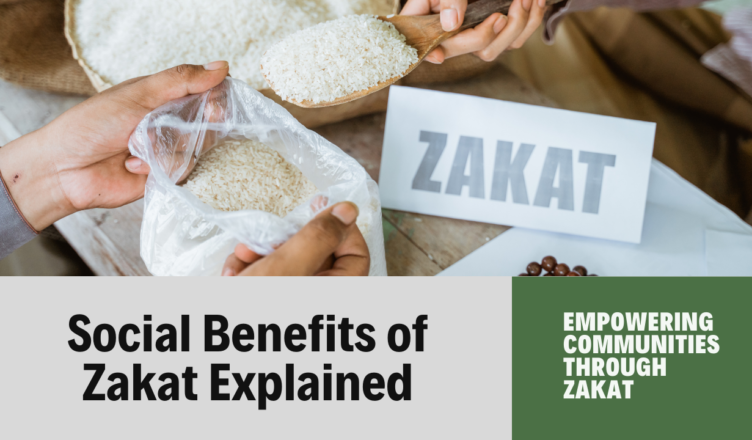Zakat, one of the Five Pillars of Islam, is a form of almsgiving and a religious obligation for all eligible Muslims. It is not merely an act of charity, but a mandatory process for those who meet the necessary criteria of wealth. The word “zakat” means purification and growth, indicating that paying zakat purifies the wealth of the giver and promotes the growth of the Muslim community by supporting those in need. Here’s an in-depth look at what zakat is and how it contributes to social and economic development:
Understanding Zakat
Zakat is an obligatory act, calculated as a fixed percentage of wealth and assets, typically 2.5%, that eligible Muslims must pay annually. It is meant to be distributed among eight categories of beneficiaries defined in the Quran (Surah At-Tawbah 9:60):
- The Poor (Al-Fuqara): Those without sufficient means to live.
- The Needy (Al-Masakin): Those who are in difficulty but have some resources.
- Zakat Collectors: Those employed to collect and distribute zakat.
- Those whose hearts are to be reconciled: New Muslims or friends of the Muslim community.
- To free the captives: For freeing slaves or those in bondage.
- To help those in debt: Assisting those overwhelmed by debt.
- In the cause of Allah: Supporting Islamic causes.
- The wayfarer: Travelers in need.
Economic Benefits of Zakat
Poverty Alleviation
The primary purpose of zakat is to alleviate poverty and provide financial support to those who are less fortunate. By redistributing wealth, zakat ensures that the basic needs of the poor and needy are met. This financial support can cover food, clothing, shelter, education, and healthcare, thereby improving the overall quality of life for the recipients.
Economic Redistribution
Zakat acts as a tool for wealth redistribution, reducing the economic disparity between the rich and the poor. It helps prevent the concentration of wealth in the hands of a few, promoting a more balanced and just economic system. By circulating wealth, zakat stimulates economic activity and contributes to the overall economic stability of the community.
Investment in Human Capital
Funds collected from zakat can be used to invest in education and skill development programs for the underprivileged. By providing access to education and vocational training, zakat helps individuals develop skills that can lead to better job opportunities and self-sufficiency. This, in turn, reduces dependency on charitable assistance and contributes to long-term economic growth.
If you want to Donate Zakat then visit our website: www.orphancare.co.uk.
Social Benefits of Zakat
Strengthening Community Bonds
Zakat fosters a sense of solidarity and brotherhood among Muslims. It reminds the wealthy of their social responsibilities and encourages them to support their less fortunate brethren. This act of giving strengthens community bonds and promotes a sense of unity and mutual support within the Muslim ummah (community).
Reducing Social Inequality
By addressing the needs of the poor and vulnerable, zakat helps reduce social inequality. It ensures that everyone has access to basic necessities and opportunities, regardless of their socio-economic status. This equitable distribution of resources helps create a more inclusive and harmonious society.
Moral and Spiritual Benefits
Paying zakat purifies the soul of the giver by discouraging greed and promoting selflessness. It cultivates a sense of gratitude and empathy, reminding Muslims of their duty to care for others. This spiritual purification helps individuals develop a closer relationship with Allah and reinforces the moral and ethical principles of Islam.
Conclusion
Zakat is a powerful instrument for promoting social justice and economic development in Muslim communities. By redistributing wealth and providing financial assistance to those in need, zakat helps alleviate poverty, reduce economic inequality, and foster social cohesion. It also encourages personal growth, both spiritually and morally, among those who give and receive. Through zakat, Muslims fulfill a divine obligation that benefits individuals and society as a whole, contributing to a more just and equitable world.

